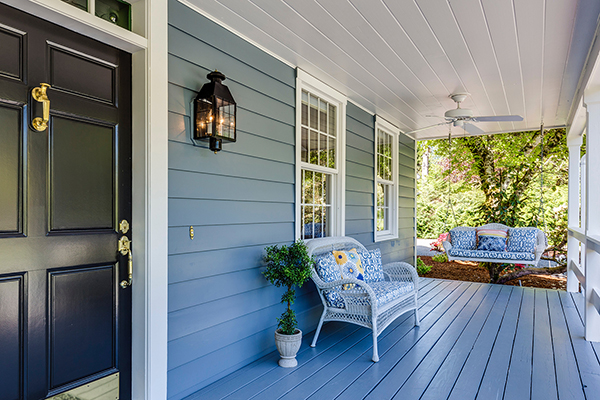
Are Real Estate Sales Slowing Down?
By Sebastian Frey
If you’re in the market to buy or sell a home, you may be paying particularly close attention to the headline news about real estate. If so, you may have seen some news stories about a cooling real estate market. Many of these stories were based off a report from Redfin, showing somewhat declining sales activity, coast to coast.
But all real estate is local, so national trends aren’t necessarily reflected in our local real estate market. But even locally, today we are seeing a modest decline in homes going under contract, and homes sold in June, compared to March, April, and May.
This has a lot of potential homebuyers and sellers asking questions. Does this mean the sky is falling? Have sellers missed the market? Is the great real estate “correction” coming, and the bubble about to burst? Will we be seeing a downturn in pricing here in Santa Cruz, and surrounding areas?
I don’t think so. I think this is largely seasonal. I always tell people that we really have two “big” markets here: spring, and fall. We normally see a lot of sales in March, April, and May, with fewer in June, July, and August. Then the market roars back to life for September, October, and the first part of November, before things get a bit quieter over the holidays.
I think this seasonality may be especially pronounced this year, because vacation season last year was essentially wiped out. Very few people went on any kind of vacations last year. This year, it seems that everyone who can is trying to get out of town. My Facebook feed is full of people in Hawaii, Costa Rica and Mexico. When they’re there, they’re not here, buying houses.
Of course, this is purely anecdotal. I know that many readers of this column will feel that the robust strength of the real estate market is a mirage, fueled by low interest rates, forgiven PPP loans and stimulus checks. You may be thinking this “softening” is just the tip of a melting iceberg, and soon we’ll be awash in lower-cost real estate.
I hear that too, and of course, economic factors such as these are part of the equation. However, I’m firmly in the camp that believes we’re seeing a generational shift in the real estate market, as millennials – America’s largest generation – ramp up their buying power and appetite for real estate.
Speaking of economic factors, back in June, there was an article on Bloomberg with the headline, California Defies Doom with No. 1 U.S. Economy and the subheading which said, “The Golden State has no peers when it comes to expanding GDP, raising household income, investing in innovation and a host of other key metrics.”Go ahead and search Google for that article. The article claims that California has the best “post-COVID” economic performance of any industrialized nation in the world, excluding China. California is creating new jobs, and increasing pay for existing workers, faster than just about anywhere. I believe it’s important to look at the overall trends and dynamics before reading too much into any reporting on the real estate market. It can be very misleading to look at a single month or quarter of data and make any assumptions about longer term trends. Even so, what’s being reported shouldn’t just simply be ignored…so what does this “dip” in the real estate market mean for you?
Well, if you’re planning on selling, it means that you really, REALLY can’t just put whatever price you want to on your home and expect it will sell. In this market, and any market, the best strategy for most homes is to price them slightly under what you expect it to sell for, and let the market dial in the price precisely, as it always does.
If you’re planning to buy, the market “softening” is unequivocally good news. There may be just a teeny tiny bit less competition out there while people are off enjoying summer, and so your odds of actually being able to find a home in your price range and a bidding war you might actually win have improved, if only slightly.
Nobody has a crystal ball; there’s no way to know for sure what the future will bring. But we can observe what’s happening now and make educated forecasts for what the future holds. One current trend which is dramatically affecting Santa Cruz is remote work. Notably, both Google and now Apple have said that going forward, employees will only need to be in the office three days per week, making a longer-distance commute much more bearable.
Locally, the Santa Cruz County Board of Supervisors has announced that half of its employees will likewise be able to work from home two days per week. The trend is clear, and it’s happening now, and Santa Cruz County, due to its proximity to the greater Bay Area, is in the crosshairs. Crazy as it may seem, this summertime “lull” in the real estate market may be your best shot at becoming a homeowner in Santa Cruz for the foreseeable future.


You May Also Like

Mac vs PC
June 29, 2021
Water Parks
June 29, 2021

